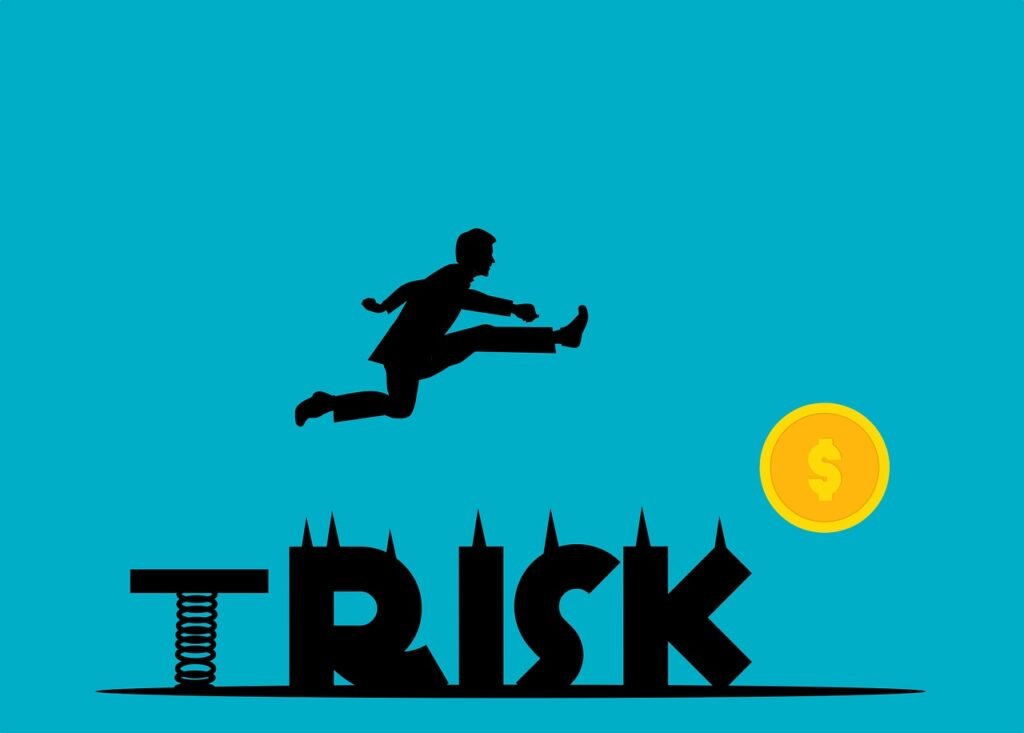
Do You Never Ever Take Any Calculated Risks? Why?
Fear is a primal emotion that has evolved over time to help us avoid dangerous situations. While this instinctual response is important for keeping us safe, it can also hinder our personal growth. It can also limit our potential to achieve success in various aspects of life. Overcoming fear and taking calculated risks can be a challenging task, but it is an essential aspect of realizing our full potential. To do so, we need to understand the root causes of our fear and develop effective strategies to overcome it. Some strategies that can help in this regard include visualizing a positive outcome, identifying and countering negative self-talk, seeking support from others, and breaking down our goals into manageable tasks.
- When it comes to facing and conquering fear, the first step is to truly recognize and embrace it. Spend some time delving into your fears and the underlying reasons behind them. By truly understanding your fears, you can begin to chart a course for overcoming them. This may involve seeking support from a therapist or loved ones, breaking down your fears into smaller, more manageable steps, or learning coping s strategies to handle difficult situations. Ultimately, your quest to conquer your fears is often a journey of self-discovery.
2. Many times, our fears arise from irrational thoughts or beliefs that we have internalized. It’s important to challenge these thoughts by asking ourselves whether they are truly valid or not. One effective way to shift our mindset towards positivity is by reframing negative thoughts into more realistic and constructive ones. This process requires a level of introspection and self-awareness, but the rewards are significant. By taking these irrational thoughts and beliefs and challenging their validity you can begin to overcome them.
3. Taking smaller steps outside of your comfort zone can help you build your confidence. It will make it easier to take on bigger risks in the future. This can be a particularly valuable strategy for those who feel intimidated or overwhelmed by the thought of taking significant risks. By starting small and gradually building up to bigger challenges, you can develop the skills and mindset necessary to succeed in a more substantial endeavor. Additionally, taking small but consistent risks can help you learn to thrive outside your comfort zone.
4. To enrich your mental and emotional well-being, it is important to build a comprehensive support network consisting of people who informally support and encourage you. These people could be family, friends, or colleagues who can help you navigate through life’s ups and downs. By having an in-depth support network, you can feel more confident and secure in your decisions, and that network can be a resource you lean on in times of need.
5. If you want to take calculated risks, it’s important to do your due diligence and plan appropriately. This means anticipating a range of potential outcomes and developing a strategy to address each one. To approach this task comprehensively, one should leave no stone unturned. The better prepared you are the better your odds at succeeding.
6. To truly succeed in life, it’s important to not just fixate on the end goal and forget about everything else. In fact, focusing on the process and journey towards that goal is equally as important. Make an effort to enjoy the risk-taking process and learn from the journey, rather than just the outcome. This shift in perspective towards the journey can help you stay motivated, even if things don’t go according to plan. So take a step back and enjoy the ride, learn from the process.
7. Learning from our failures is an essential aspect of taking risks as it allows us to recognize our shortcomings and weaknesses. Instead of viewing failures as a deterrent, we should embrace them as opportunities to learn and grow. By analyzing the factors that led to our failure, we can gain valuable insights that enable us to identify areas of improvement and enhance our skills and capabilities. In essence, failure will teach us how to eventually succeed if we pay careful attention to the lessons it provides.
8. Developing a sense of gratitude can be a powerful tool to alleviate fear and anxiety by putting things into perspective. To enrich your life with this practice, take a few moments each day to deeply reflect on all the things that you are thankful for and appreciate. Start with the basics such as being alive, having your health, or having a roof over your head. Then move on to more specific aspects of your life, your family, career, successes to date. This simple practice alone will enhance your outlook on life.
In summary, embracing calculated risks plays a significant role in achieving personal and professional growth. The process of overcoming fear and taking calculated risks involves a wide range of strategies. Some of these include identifying and challenging your fears, progressively stepping out of your comfort zone, cultivating a supportive community, developing a plan, focusing on the outcome, acknowledging and learning from failures, and practicing gratitude. By incorporating these strategies into your life, you can eliminate your fears and take the calculated risks needed to realize your aspirations and reach your full potential.









